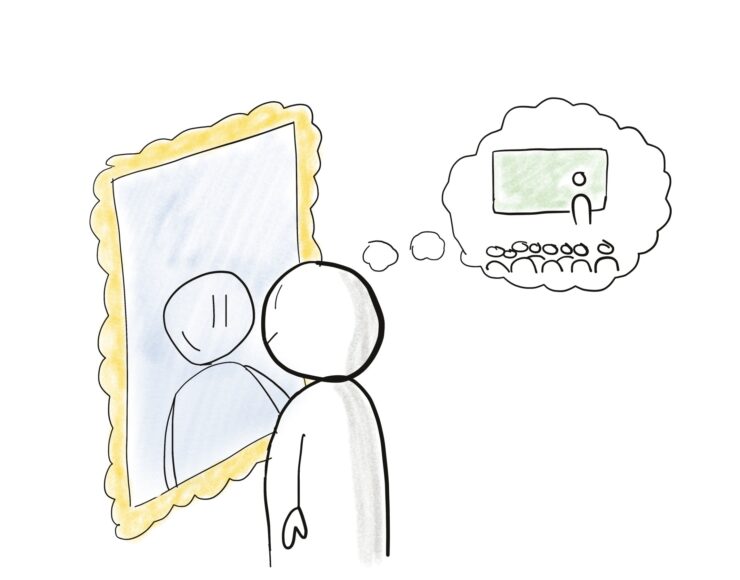Critical reflection of knowledge and skills

Teachers from a course in educational psychology come together to discuss their field and end up having a discussion regarding the one-sidedness of educational psychology as most authors have a Western background. They, in part, attribute this to the publication bias and to the differential access of researchers to funds and platforms. They decide to formulate a learning objective about this in the course and dedicate class time to discussing the topic and making the reasons for choosing literature explicit.
As mentioned in the introduction, when constructing learning objectives you think about what students need to learn during your course or programme. Though there is a broad discussion on what the purpose of learning is in (higher) education exactly, the purpose of education can relate to (1) transmitting knowledge and skills (e.g. ‘Qualification’ in terms of Biesta’s drieslag Biesta, G. (2009). Good education in an age of measurement: On the need to reconnect with the question of purpose in education. Educational Assessment, Evaluation and Accountability (formerly: Journal of Personnel Evaluation in Education), 21, 33-46. ) and (2) preparing students to function as a member of society. In this section, we discuss the first, transmitting knowledge and skills.
Part of making our education more inclusive and diverse is achieved through thinking critically about the knowledge and skills we teach, on the situatedness and limitations they present, the biases they hold and the inequalities they may perpetuate.
To do this, the first step may be to critically reflect on our own positionality (see tool ‘Reflect on your own positionality’). Positionality relates to how one’s own social background and identity may lead to personal conceptions and biases in how one relates to and interprets literature, theory, and empirical data in one’s field. In the second step, we may ask ourselves to what extent this ‘position’ of you as a person, is reflected in the knowledge and skills that we teach our students (see tool ‘Reflect on the knowledge and skills in your field’) and the knowledge and skills we do not teach. The answer to some of these questions might reveal that the type of knowledge and skills that are taught in your course, are situated within a specific context. Failing to acknowledge some of these limitations may inadvertently communicate to students that only one type of knowledge is worth learning about and doing research. Therefore, the third step in making your learning objectives more inclusive may be to explicitly communicate about the choices you made given your ‘position’ on the knowledge and skills you do and do not include in your course. Or you may want to consider it a learning objective that students reflect on the knowledge and skills they are learning about. Examples of such learning objectives can be found in tools.
Tools
Reflect on your own positionality
Completing the critical self-positioning activities created by the UU anthropology toolbox: Exercise 1- Social identity wheel and Exercise 2- Research identity wheel may help you in doing so. These exercises will help you identify how your multifaceted identities shape your experiences, your vision, reasoning and your interactions with others.
Reflect on what is taught in your course
The following reflective questions may help you identify the extent to which critical thinking over the knowledge and skills in your course is promoted.
- To what extent does your course teach students to reflect on what theories are prioritised over others and why?
- To what extent does your course teach students to reflect on who is served by the knowledge taught in the course?
- To what extent does your course teach students how the knowledge is generated, and which methods are used to obtain it?
- To what extent are students taught who funds the research, who publishes research and how research is conducted in the field?
- To what extent are students taught to reflect on in which contexts the knowledge is true/how the context influences/interacts with the knowledge?
- To what extent are students encouraged to question the knowledge taught? / To what extent does your course teach students to question the knowledge they are taught/the knowledge they encounter?
- To what extent does your course teach students to reflect on how the micro (i.e. specific context) and macro (i.e. social, cultural, historical, economic, and political factors) level influences the field?
Examples of learning objectives that enhance critical thinking about knowledge and skills
- Students gain insight in the various (cultural) discourses on contemporary social and political issues;
- Critically evaluate experimental designs in literature for the possible presence of bias;
- Write a research proposal where bias is minimalized;
- Students can demonstrate understanding of cross-cultural perspectives on education and cross-cultural differences in teaching and learning.
